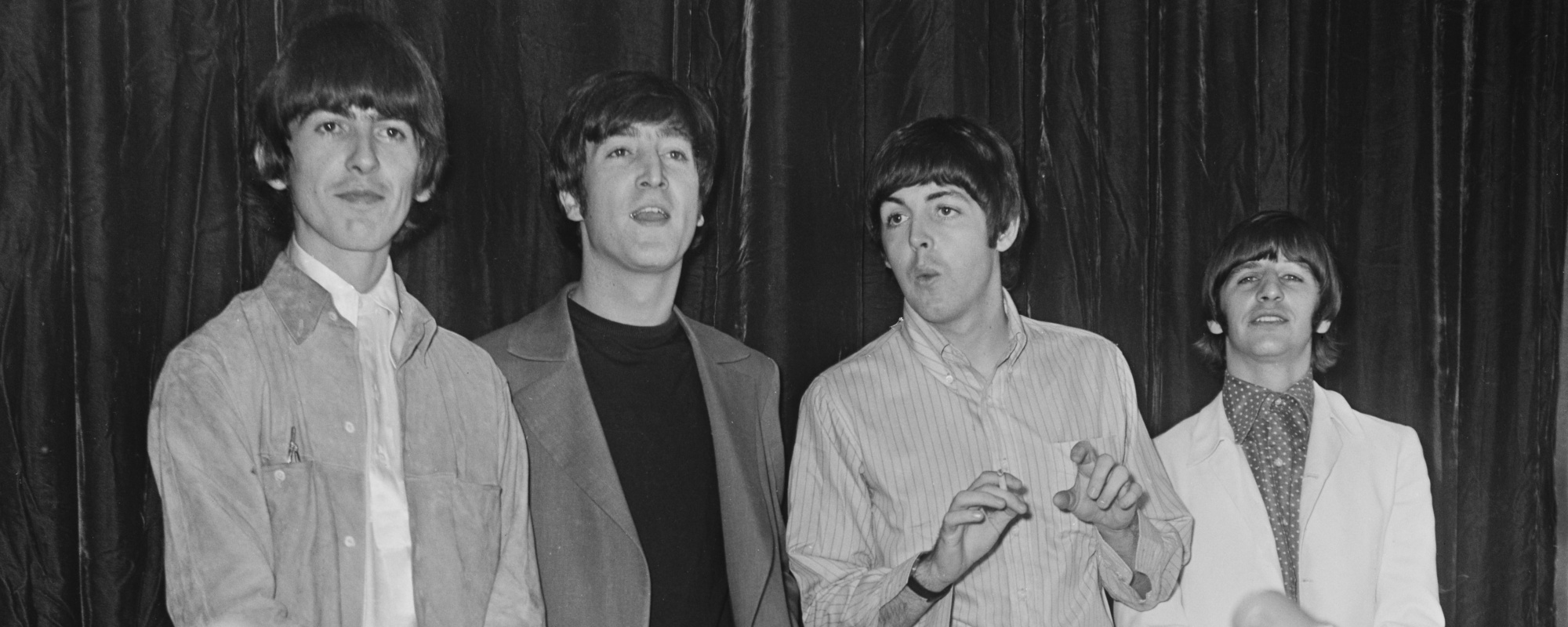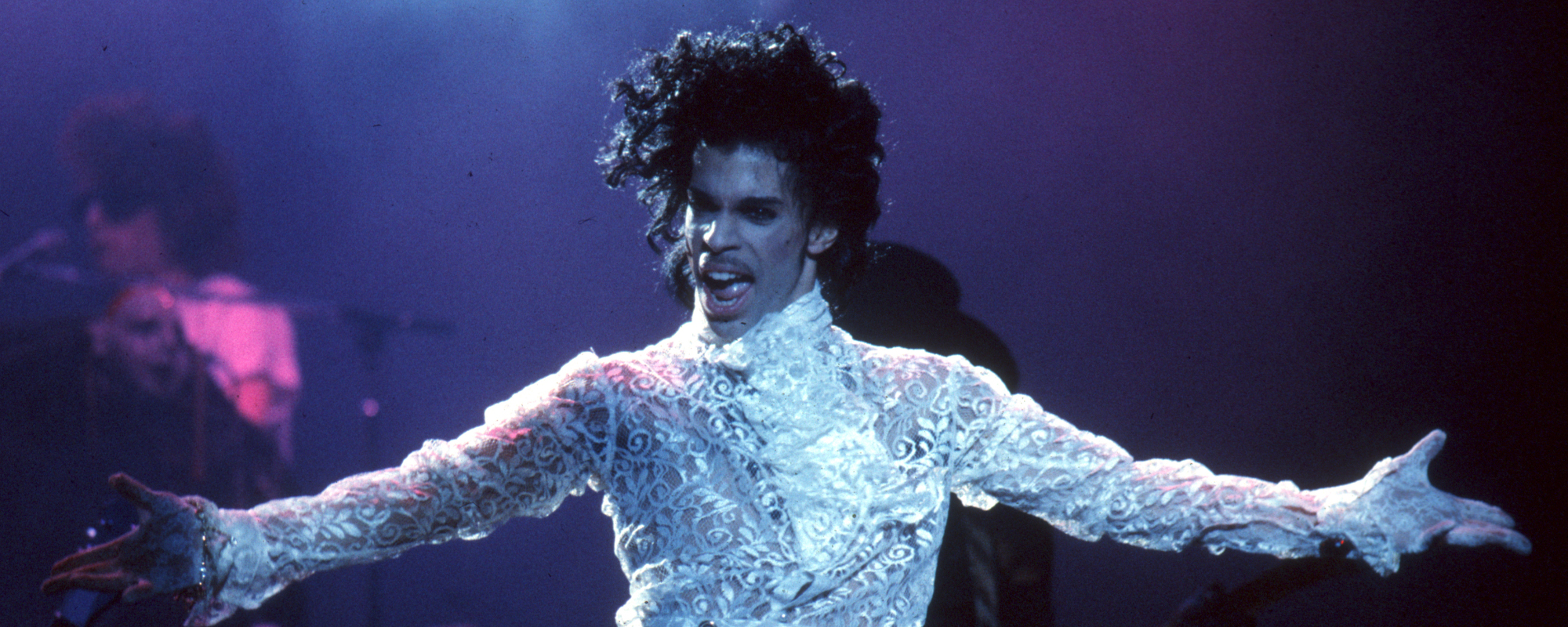For Boss fanatics, it amounts to sacrilege. The idea there might be an album he released that was a failure. But indeed, there is one album Bruce Springsteen regrets making.
Videos by American Songwriter
It can’t be overstated how huge Bruce Springsteen was in the ‘80s. Four of his five albums released in that decade (including Live/1975-85) went to No. 1 on the Billboard 200. The lone exception was Nebraska, his 1982 mostly-acoustic solo release that went to No. 3 despite not having a hit single. Born in the U.S.A. was not only the top album of 1985, but it was also one of Billboard’s Top 30 albums of both 1984 and 1986.
There was nowhere to go but down after the phenomenal success of Born in the U.S.A. Yet Springsteen’s follow-up Tunnel of Love was critically acclaimed and certified Triple Platinum. Just when it seemed that the Boss could do no wrong, the bottom fell out in the following decade. Human Touch, and its companion album Lucky Town—both released on March 31, 1992—have come to represent Springsteen’s disastrous slide.
[AS OF THIS WRITING: Boss Tickets Are Available! – Get ‘Em Right Here]
Was Human Touch Really a Disaster?
At first glance, Human Touch appeared to land just fine with fans. It went to No. 2 on the Billboard 200—a better showing than Lucky Town’s peak position of No. 3. However, its stay on the chart was a relatively modest 27 weeks, whereas Tunnel of Love lasted 45 weeks. It did get certified Platinum, but that was a step down from Tunnel of Love, not to mention Born in the U.S.A.’s Diamond certification (at least 10 million units sold). The title track was the only song to crack the Top 40 of the Billboard Hot 100, peaking at No. 16. Between Born in the U.S.A. and Tunnel of Love, Springsteen launched 10 Top 40 hits, with none peaking any lower than No. 13.
The critical response to Human Touch was far worse than its commercial performance. It was widely panned and has been ranked as Springsteen’s worst album by several outlets. While Lucky Town also failed to get the critical acclaim typically accorded to Springsteen’s albums, it is generally considered to be the superior of the two albums.
Why Did Everyone Turn Against Human Touch?
Some of the backlash against Human Touch had to do with timing. Springsteen’s sound had not evolved much during the nearly five years between Tunnel of Love and Human Touch, but grunge had turned the musical landscape upside-down in the interim. Springsteen had initially intended to release Human Touch in 1990, but he got sidetracked and started working on Lucky Town instead.
[RELATED: 10 Iconic Moments From Bruce Springsteen’s Career]
Fairly or not, some of the negative response was due to Springsteen firing the E Street Band in 1989—a move that alienated long-time fans. Adding to the perception of him “selling out” was his move to California. Springsteen attributed both of those changes to feeling like he was in a rut. In a 1992 interview with British music journalist David Hepworth, Springsteen indicated that he had his fill of writing about his New Jersey past. He told Hepworth, “That was basically done for me…I had kind of taken that as far as I could.”
Lackluster…for the Boss, at Least
Though Human Touch was a solo affair, Springsteen did retain pianist Roy Bittan and backing vocalist Patti Scialfa (who married Springsteen in 1991) from the E Street Band. E Street alum David Sancious contributed keyboards to two tracks. Springsteen himself contributed guitar and played a galloping bass line on “57 Channels (And Nothin’ On).” Human Touch also features esteemed studio musicians such as drummer Jeff Porcaro (of Toto), bassist Randy Jackson (previously of Journey and later a judge on American Idol), and guitarist Tim Pierce. Critics linked the presence of these studio hotshots to Human Touch’s relatively antiseptic sound.
Critics bashed Human Touch for its lack of adventurous songwriting and sleek production. The album’s penultimate track, “Real Man,” was a frequent target of criticism. The lyrics—about how his love for “his girl” makes him feel more masculine than any stereotypical show of machismo—aren’t up to his usual standards, and the cheesy synth horns don’t help matters. The album drew plenty of damning appraisals, though none was quite as eviscerating as the one from Bill Wyman of the Chicago Reader. He cited Human Touch as “about the worst piece of s— you can imagine coming from a talent on Springsteen’s level.”
Is It Really an Album Bruce Springsteen Regrets?
Springsteen has not been as hard on this album as the press were, but he has recognized that, at least commercially, it was a blunder. He told the music website Nerve that writing less angsty tunes for Human Touch and Lucky Town “didn’t work; the public didn’t like it.”
Springsteen has also acknowledged that the video for “57 Channels (And Nothin’ On)” was not his best work. In a 2014 post on his Facebook page, Springsteen wrote, “I have no idea what we were aiming for in this one outside of some vague sense of ‘hipness’ and an attempt at irony. Never my strong suit, it reads now to me as a break from our usual approach and kind of a playful misfire.” While Springsteen’s self-critique is aimed at the video and not the song, it speaks to the general disconnect between what fans were looking for from the Human Touch project and what they received.
Proof Is in the Performance Puddin’
Perhaps the most telling detail about Springsteen’s own response to Human Touch is that he has rarely played songs from the album other than on his 1992-93 tour. While he has continued to play “If I Should Fall Behind” from Lucky Town with some regularity, there are no songs from Human Touch that he has revisited to the same degree. Only the title track ranks among his 100 most-played songs in concert, according to setlist.fm.
Springsteen took a beating over Human Touch, and to a lesser extent with Lucky Town. To his credit, he didn’t reform the E Street Band in an effort to recreate his ‘80s “glory days.” Instead, Springsteen answered these two albums with the downbeat The Ghost of Tom Joad, to which critics responded far more kindly. The early ‘90s may have been rough on Springsteen, but he has emerged—many years and albums later—with an even greater legacy.
Photo by Rob DeMartin
**Purchases you make through our links may earn American Songwriter a commission.













Leave a Reply
Only members can comment. Become a member. Already a member? Log in.